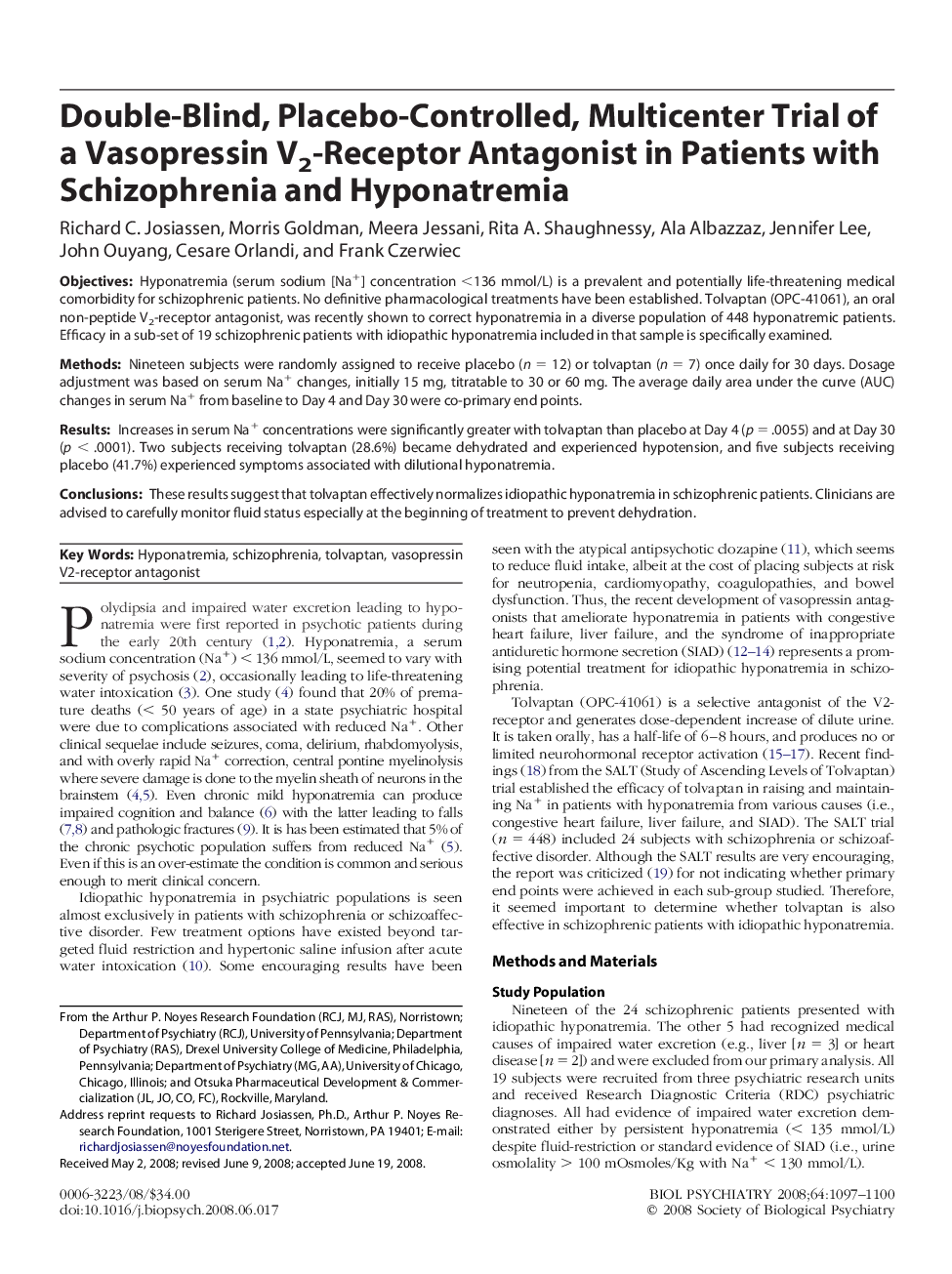| Article ID | Journal | Published Year | Pages | File Type |
|---|---|---|---|---|
| 4180048 | Biological Psychiatry | 2008 | 4 Pages |
ObjectivesHyponatremia (serum sodium [Na+] concentration <136 mmol/L) is a prevalent and potentially life-threatening medical comorbidity for schizophrenic patients. No definitive pharmacological treatments have been established. Tolvaptan (OPC-41061), an oral non-peptide V2-receptor antagonist, was recently shown to correct hyponatremia in a diverse population of 448 hyponatremic patients. Efficacy in a sub-set of 19 schizophrenic patients with idiopathic hyponatremia included in that sample is specifically examined.MethodsNineteen subjects were randomly assigned to receive placebo (n = 12) or tolvaptan (n = 7) once daily for 30 days. Dosage adjustment was based on serum Na+ changes, initially 15 mg, titratable to 30 or 60 mg. The average daily area under the curve (AUC) changes in serum Na+ from baseline to Day 4 and Day 30 were co-primary end points.ResultsIncreases in serum Na+ concentrations were significantly greater with tolvaptan than placebo at Day 4 (p = .0055) and at Day 30 (p < .0001). Two subjects receiving tolvaptan (28.6%) became dehydrated and experienced hypotension, and five subjects receiving placebo (41.7%) experienced symptoms associated with dilutional hyponatremia.ConclusionsThese results suggest that tolvaptan effectively normalizes idiopathic hyponatremia in schizophrenic patients. Clinicians are advised to carefully monitor fluid status especially at the beginning of treatment to prevent dehydration.
